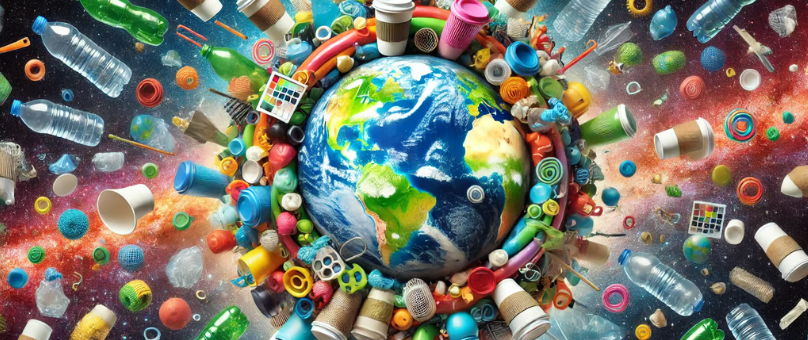16 Crazy Facts About Consumption We bet You Did Not Know
Sometimes it is hard to wrap our heads about the scale of global consumption. It might sound all theoretical until you face such real and practical questions as where to place all these items and waste and what the real price of this phenomenon is. Here are some crazy facts I bet you did not know about consumption.
CONSUMERISMAMAZING FACTSPOLLUTIONPLANET
Genya
8/6/20252 min read


Here are some surprising, thought-provoking, and "crazy" facts about consumption that you likely did not know and that put things in perspective:
The Plastic Predicament
Humans buy nearly 1 million plastic bottles per minute, and less than 10% of all plastic ever produced has been recycled.
Fast Fashion Shock
The world now consumes over 80 billion pieces of new clothing each year, a 400% increase from two decades ago. This is to a big extent due to the phenomenon of fast fashion.
Landfill Longevity
An estimated 12 million tons of textile waste is discarded annually in the U.S. alone, and each item can take over 200 years to decompose in a landfill.
Advertising Bombardment
The average person sees between 4,000 and 10,000 ads per day, constantly reinforcing the desire to buy more.
Shoes and Environmental Impact
The production of a single pair of leather shoes emits as much CO₂ as leaving a 100-watt light bulb on for a week straight.
Food Waste Epidemic
Approximately one-third of the food produced globally for human consumption is wasted each year, totaling around 1.3 billion tons, worth nearly $1 trillion.
E-Waste Explosion
Around 50 million tons of e-waste are generated each year worldwide, which is equivalent to the weight of about 4,500 Eiffel Towers.
The Rise of Storage Units
There are more storage facilities in the U.S. than there are McDonald's and Starbucks combined. The industry generates over $39 billion annually, mostly from people storing things they rarely use.
The Coffee Cup Problem
Globally, we use approximately 500 billion disposable coffee cups each year. Stacked end-to-end, they would reach around the world 1,360 times.
The ‘Peak Stuff’ Paradox
Research suggests we are consuming fewer physical items than in past decades but spending more money on experiences, services, and digital products—suggesting a shift rather than a decrease in consumerism.
Toy Mountain
The toy industry produces around 1 billion Barbie dolls since its inception, meaning there's enough Barbies for 1 in every 8 people on Earth.
Wasting Water on Jeans
Producing a single pair of jeans requires up to 1,800 gallons of water, which is more than an average person drinks over 10 years.
Packaging Overload
Packaging accounts for about 40% of all plastic use, and much of it is for single-use items that are discarded immediately after purchase.
Unused Wardrobes
In the U.S., 60% of clothing purchased each year is never worn, sitting in closets or drawers with tags still attached.
The Great Shoe Buy
Globally, we purchase around 24 billion pairs of shoes each year, equating to about 3 pairs per person on the planet.
Paper Towel Overuse
Americans use around 13 billion pounds of paper towels annually, enough to wrap around the Earth 20 times if laid end-to-end.
Including these facts could serve as eye-opening content to emphasize the absurdity of overconsumption and highlight the urgency of sustainable change.